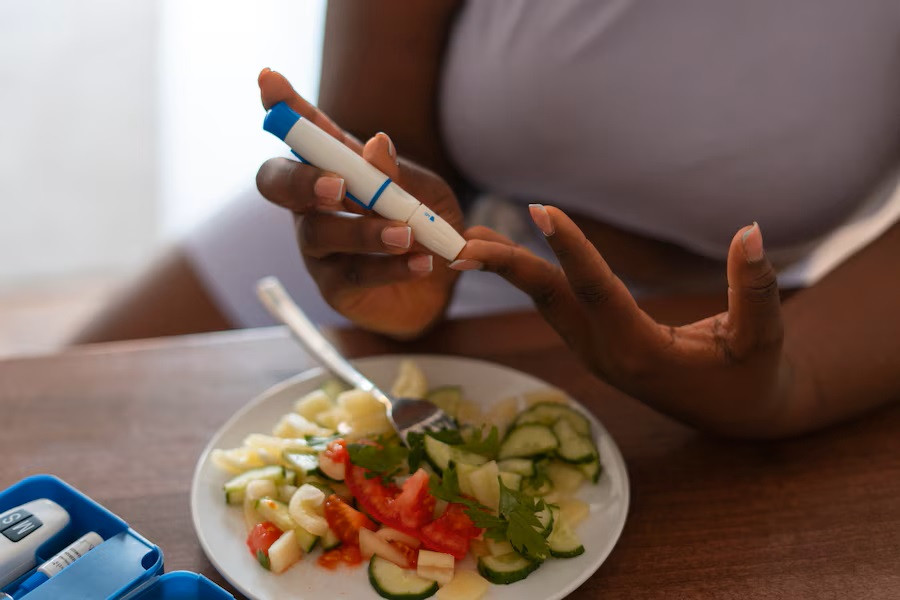Hipoglikemia pada bayi baru lahir terjadi ketika kadar glukosa dalam darah bayi terlalu rendah. Glukosa merupakan sumber energi utama bagi otak dan tubuh, kadar glukosa yang stabil penting dalam menjalankan fungsi normal tubuh.
Kondisi ini berpotensi serius dan berbahaya jika tidak diobati dengan cepat. Bagaimana mengobati hipoglikemia pada bayi?
Normalkah Hipoglikemia pada Bayi Baru Lahir?
Hipoglikemia sebenarnya umum terjadi pada bayi baru lahir. Beberapa bayi mungkin mengalami penurunan kadar gula darah dalam beberapa jam setelah kelahiran mereka. Hal ini terjadi karena bayi baru lahir biasanya mengalami perubahan dalam produksi dan pengaturan hormon insulin dan glukosa setelah terpisah dari plasenta.
Sebagian besar bayi akan pulih dengan sendirinya dan tidak mengalami masalah jangka panjang. Namun, pada beberapa bayi kadar glukosa darah bisa turun terlalu rendah dan berisiko menyebabkan gangguan neurologis, kerusakan otak, masalah perkembangan, gangguan pernapasan atau hipoglikemia reaktif di masa depan.
Baca Juga: Hipoglikemia pada Bayi Baru Lahir, Ketahui Penyebab dan Gejalanya
Pengobatan Hipoglikemia pada Bayi Baru Lahir
Pengobatan hipoglikemia pada bayi baru lahir tergantung pada berbagai faktor, termasuk tingkat keparahan dan kondisi kesehatan bayi. Berikut adalah beberapa metode umum yang digunakan dalam pengobatan hipoglikemia pada bayi baru lahir:
Pemberian makanan
Pada kebanyakan kasus, hipoglikemia ringan pada bayi baru lahir dapat diatasi dengan pemberian makanan atau minuman yang mengandung glukosa atau karbohidrat lainnya. Ini bisa berupa ASI atau susu formula, atau larutan glukosa oral.
Baca Juga: Tanda-Tanda Bayi Baru Lahir Memiliki Penyakit Jantung Bawaan
Infus glukosa
Dalam kasus yang lebih parah, bayi mungkin memerlukan pemberian glukosa melalui infus intravena. Ini dilakukan jika kadar glukosa dalam darah bayi sangat rendah atau jika bayi tidak dapat menyerap glukosa melalui pemberian makanan oral.
Memantau kadar glukosa bayi
Memantau kadar glukosa dalam bayi dengan hipoglikemia sangat penting. Dokter perlu terus memantau kadar glukosa dalam darah bayi secara teratur untuk memastikan bahwa kadar glukosa tetap stabil dan tidak turun kembali ke tingkat yang berbahaya.
Pemeriksaan kadar glukosa dilakukan dengan mengambil sampel darah dari bayi. Sampel tersebut kemudian dianalisis menggunakan alat pengukur glukosa darah yang memberikan hasil kadar glukosa dalam darah bayi. Pemantauan ini penting karena kadar glukosa yang terlalu rendah bisa berdampak serius pada bayi.
Beberapa bayi mungkin membutuhkan pemantauan jangka panjang untuk memastikan bahwa kadar glukosa dalam darah tetap stabil dan tidak ada masalah kesehatan lain terkait hipoglikemia. Anda mungkin juga perlu berkonsultasi dengan dokter spesialis anak atau endokrinologis terkait permasalahan ini.
Dengan perawatan yang tepat dan pemantauan cermat, bayi yang mengalami hipoglikemia dapat pulih sepenuhnya serta dapat tumbuh dan berkembang dengan normal. Apabila Anda memiliki pertanyaan lain terkait hipoglikemia atau masalah kesehatan bayi lainnya, jangan ragu untuk bertanya pada dokter kami melalui layanan konsultasi kesehatan Ai Care yang bisa diunduh di App Store atau Play Store.
Mau tahu informasi seputar kehamilan, menyusui, kesehatan wanita dan anak-anak? Cek di sini, ya!
- dr Nadia Opmalina
The Royal Children's Hospital Melbourne. Neonatal hypoglycaemia. Available from: https://www.rch.org.au/rchcpg/hospital_clinical_guideline_index/Neonatal_hypoglycaemia/
Hillarie Cranmer, MD, MPH, FACEP (2022). Neonatal Hypoglycemia Treatment & Management. Available from: https://emedicine.medscape.com/article/802334-treatment?form=fpf
Stanford Medicine. Hypoglycemia in a Newborn Baby. Available from: https://www.stanfordchildrens.org/en/topic/default?id=hypoglycemia-in-a-newborn-baby-90-P01961
Elizabeth Rosenfeld, MD, MSCE and Paul. S. Thornton, MB, BCh, MRCPI, DCH (2023). Hypoglycemia in Neonates, Infants, and Children. Available from: https://www.ncbi.nlm.nih.gov/books/NBK594592/
M. Regina Castro, M.D. (2023). Reactive hypoglycemia: What can I do?. Available from: https://www.mayoclinic.org/diseases-conditions/diabetes/expert-answers/reactive-hypoglycemia/faq-20057778
Catherine Crider (2023). What to Know About Neonatal Hypoglycemia. Available from: https://www.healthline.com/health/neonatal-hypoglycemia












